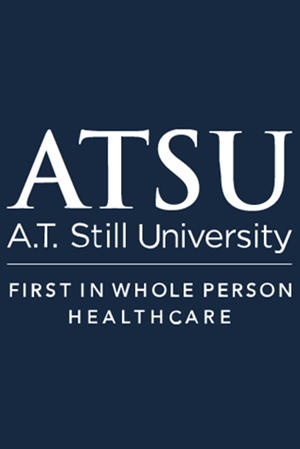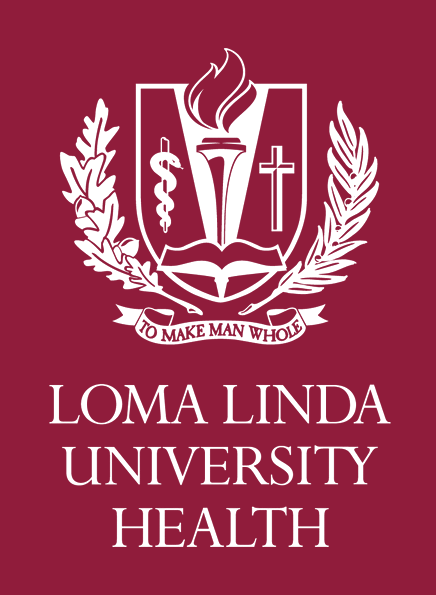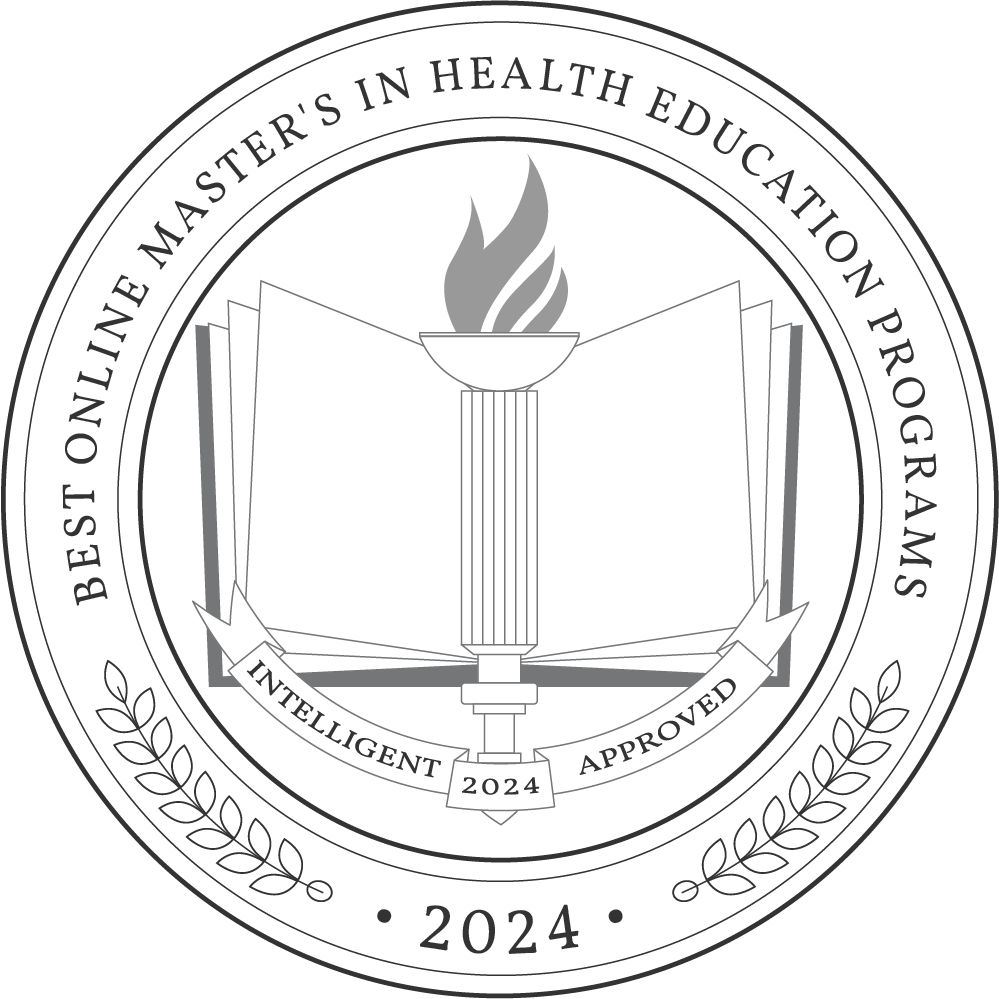Completing an online master’s in health education will help students extend their medical knowledge. Doing so isn’t time-intensive — with programs ranging between 35 to 50 credits, completing such a degree in as little as one year is possible. Whether students wish to advance a medical career or break into the field, this degree will help open doors to more senior and administrative positions.
According to the National Center for Education Statistics, the average cost for graduate school tuition is $20,513 per year. With this degree, you may qualify for positions as a medical and health services manager, where you can expect an annual salary of around $110,680 per year.
How to Choose an Online Master’s in Health Education Program
Choose your area of study
This degree may be offered as a Master of Arts (MA), Master of Science (MS), Master of Public Health (MPH), or Master of Education (MEd). Most online master’s in health education programs do not allow you to focus on a specialty, as they are primarily designed to help students pass the National Commission for Health Education Credentialing exam, which is the final step before becoming a Certified Health Education Specialist.
Because the coursework needs to cover everything students might be tested on, students will learn much about different areas, including communication, advocacy, research, ethics, leadership, management, and more. Regardless of the exact health career you intend to pursue, passing the NCHEC exam opens multiple opportunities for you.
Research schools and programs
There are many different online master’s in health education programs to choose from, so it’s very important to be selective.
You should only apply to institutions that have been approved by a DOE-recognized regional accrediting organization, such as the New England Commission of Higher Education or Northwest Commission on Colleges and Universities. These organizations evaluate schools to ensure they provide students with a high-quality education. Those who attend a school that isn’t regionally accredited may be unable to access financial aid or transfer credits to another institution if needed.
Ideally, your master’s in health education program will also be accredited by a respected industry group like the Council on Education for Public Health (CEPH). This accrediting organization has particularly high standards for health education programs.
Beyond that, consider how much the program will cost and how long it will take to complete. While exploring other options is always essential, it’s wise to focus on programs that suit your working budget and your current schedule, especially if you are working part-time or full-time while attending school.
To learn more about any schools that you’re interested in, you can visit the school’s website, contact an admissions counselor, follow the school on social media, or attend an in-person or virtual open house.
Prepare for tests and applications
Application requirements vary by school and program. After narrowing down the list of interesting schools, check if they require students to submit GRE scores as part of the application. These days, an increasing number of programs no longer require such scores, but if a program does require them, be sure to consider how much time is needed to study (this can take up to three months) and to receive results (which can take up to 15 days). Pay close attention to application deadlines, and don’t forget to include any other required paperwork, which often includes transcripts, letters of recommendation, and a personal statement.
Before submitting an application, always contact an admissions counselor to ensure you have the most accurate information regarding requirements and deadlines.
Select your program
Apply to multiple programs that sound interesting. Doing so maximizes your odds of getting into graduate school and allows students to be selective.
Before making your final decision, review your needs and goals again. Do you plan to attend school full-time or part-time? Do you want your program to be as online as possible, or are you fine with a hybrid program that has a fair amount of in-person requirements? Some programs offer asynchronous courses, which can be completed at your own pace, while others only offer synchronous courses, which involve remotely attending lectures and completing assignments at the same time as other students — which of these two online learning formats do you prefer? Your school should accommodate your scheduling needs and learning preferences.
Determine how you’ll pay for your degree
Aside from utilizing any money they have saved, the best way for students to help pay for their online master’s in health education degree is to fill out the Free Application for Federal Student Aid (FAFSA). Completing this application may qualify students for federal loans, and the FAFSA is typically required for most grants and scholarships (both of which, unfortunately, are less available at the graduate level).
Veterans may qualify for special assistance directly through the school. Nonveterans are also encouraged to contact the financial aid departments of any schools they are interested in to inquire about other forms of aid that may be available. Those who already work in the field should see if their employer offers tuition assistance benefits as well.
Best 27 Accredited Online Master’s in Health Education Programs
Institution Type
Status
- Intelligent Score
- Alphabetically By University Name
- Acceptance Rate
- Enrollment
- In-state Graduate Tuition
- Out-of-state Graduate Tuition
- In-state Undergraduate Tuition
- Out-of-state Undergraduate Tuition

ECU College of Health and Human Performance
Intelligent Score: 99.86Undergraduate Tuition
In-state: $4,452
Out-of-state: $20,729
Graduate Tuition
In-state: $4,749
Out-of-state: $4,749
Test scores
SAT: 1020-1170
ACT: 19-24
ESTIMATED COST PER CREDIT
Resident: $289
Non-Resident: $1,020
DELIVERY FORMAT
Online, On- Campus
ACCREDITATION
Southern Association of Colleges and Schools Commission on Colleges
REQUIRED CREDITS TO GRADUATE
30

University of Florida
Intelligent Score: 98.58Undergraduate Tuition
In-state: $4,477
Out-of-state: $25,694
Graduate Tuition
In-state: $10,770
Out-of-state: $10,770
Test scores
SAT: 1290-1460
ACT: 29-33
ESTIMATED COST PER CREDIT
$585
DELIVERY FORMAT
Online
ACCREDITATION
Southern Association of Colleges and Schools Commission on Colleges
REQUIRED CREDITS TO GRADUATE
30

Texas A&M Public Health
Intelligent Score: 95.74Undergraduate Tuition
In-state: $8,395
Out-of-state: $36,849
Graduate Tuition
In-state: $6,775
Out-of-state: $6,775
Test scores
SAT: 1160-1380
ACT: 26-32
ESTIMATED COST PER CREDIT
Resident: $891
Non-Resident: $1,950
DELIVERY FORMAT
Online, On- Campus
ACCREDITATION
Council on Education for Public Health
REQUIRED CREDITS TO GRADUATE
30

East Stroudsburg University
Intelligent Score: 94.83Undergraduate Tuition
In-state: $8,288
Out-of-state: $16,576
Graduate Tuition
In-state: $10,062
Out-of-state: $10,062
Test scores
SAT: 900-1110
ACT: 16-23
ESTIMATED COST PER CREDIT
Resident: $559
Non-Resident: $817
DELIVERY FORMAT
Online
ACCREDITATION
Council on Education for Public Health
REQUIRED CREDITS TO GRADUATE
30

University of Alabama
Intelligent Score: 94.73Undergraduate Tuition
In-state: $10,780
Out-of-state: $30,250
Graduate Tuition
In-state: $10,780
Out-of-state: $10,780
Test scores
SAT: 1070-1330
ACT: 23-31
ESTIMATED COST PER CREDIT
$440
DELIVERY FORMAT
Online
ACCREDITATION
Southern Association of Colleges and Schools Commission on Colleges
REQUIRED CREDITS TO GRADUATE
40

Nova Southeastern University
Intelligent Score: 93.22Undergraduate Tuition
In-state: $32,370
Out-of-state: $32,370
Graduate Tuition
In-state: $20,618
Out-of-state: $20,618
Test scores
SAT: 1030-1240
ACT: 20-27
ESTIMATED COST PER CREDIT
$462
DELIVERY FORMAT
Online
ACCREDITATION
Southern Association of Colleges and Schools Commission on Colleges
REQUIRED CREDITS TO GRADUATE
43

Georgia State University
Intelligent Score: 92.22Undergraduate Tuition
In-state: $7,158
Out-of-state: $22,389
Graduate Tuition
In-state: $7,164
Out-of-state: $7,164
Test scores
SAT: 1030-1260
ACT: 20-26
ESTIMATED COST PER CREDIT
Resident: $324
Non-Resident: $898
DELIVERY FORMAT
Online
ACCREDITATION
Southern Association of Colleges and Schools Commission on Colleges
REQUIRED CREDITS TO GRADUATE
36

Liberty University
Intelligent Score: 91.92Undergraduate Tuition
In-state: $14,791
Out-of-state: $14,791
Graduate Tuition
In-state: $7,935
Out-of-state: $7,935
Test scores
SAT: 1040-1250
ACT: 21-29
ESTIMATED COST PER CREDIT
$565
DELIVERY FORMAT
Online
ACCREDITATION
Council on Education for Public Health
REQUIRED CREDITS TO GRADUATE
42

University of South Carolina
Intelligent Score: 91.69Undergraduate Tuition
In-state: $12,288
Out-of-state: $33,528
Graduate Tuition
In-state: $13,737
Out-of-state: $13,737
Test scores
SAT: 1140-1340
ACT: 25-31
ESTIMATED COST PER CREDIT
Resident: $624
Non-Resident: $1,352
DELIVERY FORMAT
Online, On- Campus
ACCREDITATION
Council for the Accreditation of Educator Preparation
REQUIRED CREDITS TO GRADUATE
45

A.T. Still University
Intelligent Score: 89.68Undergraduate Tuition
In-state: NA
Out-of-state: NA
Graduate Tuition
In-state: $60,679
Out-of-state: $60,679
Test scores
SAT: 122 - 131
ACT: N/A
ESTIMATED COST PER CREDIT
$800
DELIVERY FORMAT
Online
ACCREDITATION
Higher Learning Commission
REQUIRED CREDITS TO GRADUATE
30

Valdosta State University
Intelligent Score: 89.31Undergraduate Tuition
In-state: $4,371
Out-of-state: $15,426
Graduate Tuition
In-state: $4,572
Out-of-state: $4,572
Test scores
SAT: 990-1140
ACT: 19-23
ESTIMATED COST PER CREDIT
$293
DELIVERY FORMAT
Online
ACCREDITATION
Southern Association of Colleges and Schools Commission on Colleges
REQUIRED CREDITS TO GRADUATE
33

Emporia State University
Intelligent Score: 88.98Undergraduate Tuition
In-state: $5,278
Out-of-state: $19,522
Graduate Tuition
In-state: $6,547
Out-of-state: $6,547
Test scores
SAT: N/A
ACT: N/A
ESTIMATED COST PER CREDIT
$376
DELIVERY FORMAT
Online
ACCREDITATION
Higher Learning Commission
REQUIRED CREDITS TO GRADUATE
32

Boston University Chobanian & Avedisian School of Medicine
Intelligent Score: 86.93Undergraduate Tuition
In-state: $56,854
Out-of-state: $56,854
Graduate Tuition
In-state: $56,854
Out-of-state: $56,854
Test scores
SAT: 1310-1500
ACT: 30-34
ESTIMATED COST PER CREDIT
$955
DELIVERY FORMAT
Online, On- Campus
ACCREDITATION
New England Commission of Higher Education
REQUIRED CREDITS TO GRADUATE
32

Teachers College at Columbia University
Intelligent Score: 86.01Undergraduate Tuition
In-state: $57,864
Out-of-state: $57,864
Graduate Tuition
In-state: $49,024
Out-of-state: $49,024
Test scores
SAT: 1460-1570
ACT: 33-35
ESTIMATED COST PER CREDIT
$1,913
DELIVERY FORMAT
Online, On- Campus
ACCREDITATION
Council on Education for Public Health
REQUIRED CREDITS TO GRADUATE
42

Nebraska Methodist College
Intelligent Score: 84.85Undergraduate Tuition
In-state: $33,309
Out-of-state: $33,309
Graduate Tuition
In-state: $37,225
Out-of-state: $37,225
Test scores
SAT: 1140
ACT: 22
ESTIMATED COST PER CREDIT
$741
DELIVERY FORMAT
Online
ACCREDITATION
Coordinating Commission for Postsecondary Education
REQUIRED CREDITS TO GRADUATE
36

Loma Linda University School of Public Health
Intelligent Score: 83.82Undergraduate Tuition
In-state: $37,332
Out-of-state: $37,332
Graduate Tuition
In-state: $45,790
Out-of-state: $45,790
Test scores
SAT: Not Required
ACT: Not Required
ESTIMATED COST PER CREDIT
$913
DELIVERY FORMAT
Online
ACCREDITATION
Western Association of Schools and Colleges
REQUIRED CREDITS TO GRADUATE
56

Maryland University of Integrative Health
Intelligent Score: 83.51Undergraduate Tuition
In-state: $38,295
Out-of-state: $38,295
Graduate Tuition
In-state: $10,656
Out-of-state: $10,656
Test scores
SAT: N/A
ACT: N/A
ESTIMATED COST PER CREDIT
$934
DELIVERY FORMAT
Online
ACCREDITATION
Middle States Commission on Higher Education
REQUIRED CREDITS TO GRADUATE
35

Idaho State University
Intelligent Score: 83.3Undergraduate Tuition
In-state: $5,928
Out-of-state: $22,550
Graduate Tuition
In-state: $7,982
Out-of-state: $7,982
Test scores
SAT: N/A
ACT: N/A
ESTIMATED COST PER CREDIT
Resident:$354
Non-Resident: $953
DELIVERY FORMAT
Online, On- Campus
ACCREDITATION
Northwest Commission on Colleges and Universities
REQUIRED CREDITS TO GRADUATE
30
How We Rank Schools
We concentrated our research on master’s programs in health education and related areas. All the programs we reviewed are delivered entirely or primarily through online coursework.
To ensure the quality of these programs, we only reviewed options offered by regionally accredited schools. Several of these options also have programmatic accreditation through the Council on Education for Public Health (CEPH).
Once we narrowed our list of programs, we evaluated each based on outcomes, reputation, cost, faculty, and flexibility. Then, we calculated an Intelligent Score for each program on a scale of 0 to 100. For a more extensive explanation, check out Our Ranking Methodology.
What Can You Expect from an Online Master’s in Health Education Program?
When students begin an online master’s in health education program, they can expect coursework that extensively builds on what they previously learned via their undergraduate health studies.
In addition to providing you with specialized knowledge of many different health issues, such programs will help you learn more about how socioeconomic status affects community health and how to communicate preventative health practices to large groups better. These programs also help students develop leadership and management skills.
For the most part, online master’s in health education programs do not require students to complete any residencies or in-person labs, so they can effectively attend school from anywhere (just be sure to look up the out-of-state student costs). Full-time students can expect to complete this program in two years, though part-time students may need longer. Some students may choose to enroll in an accelerated program that can be completed in one year.
Potential courses you’ll take in an online master’s in health education program
- Human Development. This course covers how the average person develops from birth to death and how age affects physical and mental conditions. In addition to diving into biology and a bit of psychology, this course also explores the different factors impacting this development, including the choices people commonly make at various stages of their lives.
- Leadership in Health Education. This course prepares students to become influential health leaders, both in the local community and in the organizations students end up working for. Students in this class will learn how to make data-driven decisions to positively impact those around them and navigate the ethical and legal considerations that affect their healthcare practices.
- Assessment and Evaluation. Healthcare is a very data-driven field, and this class helps students learn more about research techniques as well as how to interpret data accurately and effectively.
- Principles and Practice in Health Education. There are many theories and theoretical models underpinning health education, and this course helps students learn more about how those theories apply to real people and real-world scenarios. They’ll also learn more about implementing interventions and overcoming barriers to provide better health guidance to their local community.
What Can You Do With an Online Master’s in Health Education?
Career outlook
The career outlook for individuals with a master’s degree in health education is highly promising, driven by the increasing emphasis on preventive healthcare and wellness promotion.
Indeed, an online master’s degree in health education opens doors to a wide range of career paths within the field of public health and wellness. Here are some common career options:
- Health education specialist — Some health education specialists work in clinical settings to help patients understand their conditions and treatments, while others develop materials and campaigns to promote public health.
- Median annual salary: $62,860
- Projected employment growth (through 2032): 7%
- New job openings projected: 6,600 annually
- Health services manager — Manage a healthcare practice or department and supervise medical staff.
- Median annual salary: $110,680
- Projected employment growth (through 2032): 28%
- New job openings projected: 54,700 annually
- Exercise physiologist — Design exercise plans to help patients address cardiovascular health, muscle strength, and other health concerns.
- Median annual salary: $54,860
- Projected employment growth (through 2032): 10%
- New job openings projected: 1,200 annually
Online Master’s in Health Education Degree Frequently Asked Questions
How do I apply to an online master’s in health education degree program?
Some master’s in health education programs may require that students submit their GRE scores along with the application and other paperwork, such as undergraduate transcripts. Additionally, some applications may require submitting things like letters of recommendation and application essays.
Even if you have a good idea of what the application requires, contacting admissions counselors at the schools that sound interesting is recommended. The counselors can verify exactly what is (and is not) required for the application, and they will be able to answer any questions students may have about the process.
How much does an online master’s in health education degree cost?
The National Center for Education Statistics reports that the average annual cost of graduate school tuition is $12,596 at public institutions and $28,017 at private institutions. It should be noted that although public institutions are generally more affordable, they usually charge out-of-state students a much higher tuition rate than in-state students.
How long does it take to earn an online master’s in health education degree?
As with their in-person counterparts, most online master’s in health education degrees can be completed in two years by full-time students.
Accelerated programs are available that will help students finish everything within one year. Additionally, most online programs are flexible enough that students can attend part-time if necessary. This flexibility is convenient if students have existing responsibilities such as a job or family obligations.
Is an online master's in health education worth it?
Graduates with a master’s in health education have the opportunity to positively impact public health and wellness through various roles in education, community outreach, policy development, and program management. Their work is essential in addressing health disparities, promoting healthy behaviors, and improving the overall well-being of individuals and communities.
Many positions in the health education field are growing more rapidly than the economy as a whole, and individuals with a master’s degree in the field may find themselves well-suited to lucrative positions with leadership potential.
Online programs offer a high degree of flexibility, especially in programs that feature asynchronous classes. They may be an excellent choice for adult learners who must sandwich their study time between personal or professional commitments.
